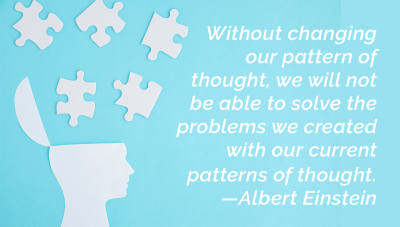Shifting from Pieces and Parts to Wholes
When tackling a problem, it’s easier to analyze its pieces and parts and try to solve them one by one than it is to try and understand the whole situation or system. However, this approach rarely works because analyzing the parts does not help us understand how the system in which the problem is embedded works nor how it keeps the problem you want to solve in place. Systems thinking, on the other hand, seeks … Read more…










